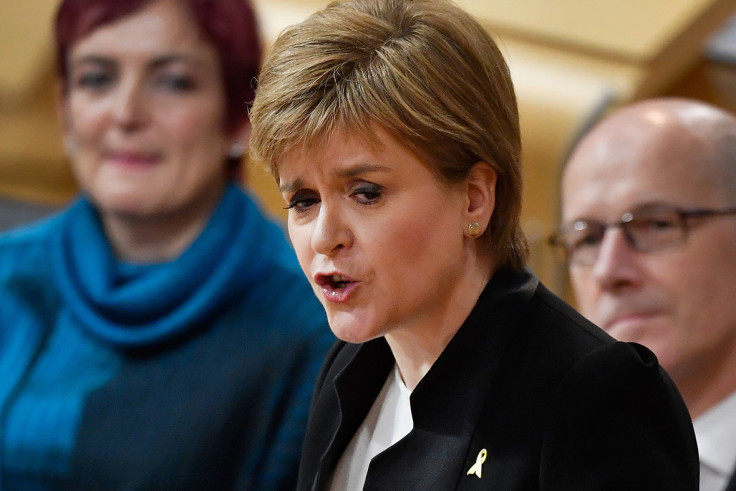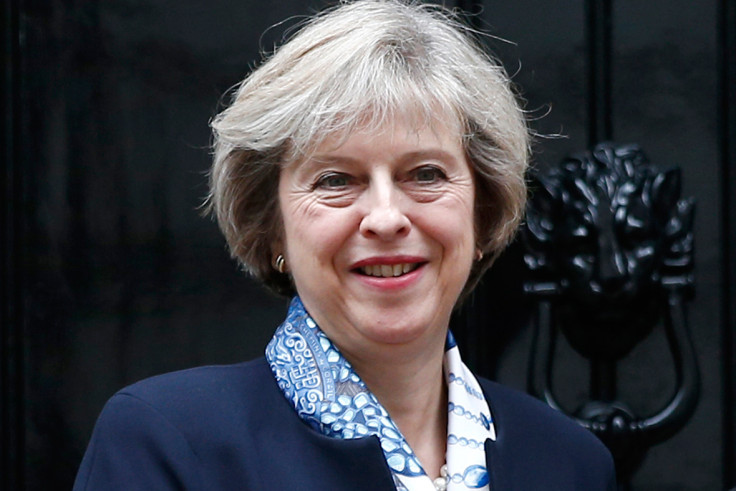Prime Minister Theresa May rules out Scottish veto over Brexit
Tory PM said she will listen to Scotland's concerns, but won't let them stop Brexit.
Prime Minister Theresa May has refuted claims that Scotland's devolved government will have the power to veto negotiations for the UK to leave the UK, blocking Brexit.
The Conservative PM said she will listen to Scotland's concerns, but she will not allow them to veto agreements over how Britain will exit from the EU.
Her comments follow Nicola Sturgeon's calls on Tuesday (27 September) for more detail on how the British government plans to prevent a "hard Brexit" deal that could cause severe damage to the UK economy.
Speaking to BBC Scotland ahead of the start of the Conservative conference in Birmingham, May said: "What I am very clear about is that, as we look into these negotiations, we will fully engage the Scottish government in the discussions that we have, in preparing what position the UK is going to take."
However, when asked directly if Scotland could have a veto over Brexit, May said: "The United Kingdom will have a position in the negotiations and we, as a United Kingdom government, will be negotiating with the European Union."
May's stance will mean the UK's devolved parliaments in Scotland, Wales and Northern Ireland won't be able to slow or hinder the process of EU withdrawal.
However, Scotland's First Minister has made clear that she will be pushing for Scottish independence following the "undemocratic" EU vote.

Speaking to business leaders on Tuesday (27 September), SNP leader Sturgeon said: "In many ways, EU membership is now part of Scotland's sense of itself.
"I've made it clear that a referendum on Scottish independence must remain an option, if the approach taken by the Westminster government proves to be seriously damaging to our economy, our competitiveness and to our place in the world."
Scottish voters rejected independence in 2014, but they voted to stay in the bloc in June's historic EU referendum, 62% to 38%.
Hard Brexit vs Soft Brexit
"Hard Brexit" is a term used to describe the UK severing all trade relations with the EU on Brexit. This would see the UK and EU relying on default World Trade Organisation (WTO) trade agreements, loosing access to Europe's Single Market, tariff-free exports and imports, and the right to visa-free travel within the UK.
The "Soft Brexit" alternatives include membership of the European Economic Area (EEA, as with Norway), forming a European Free Trade Association agreement (similar to Switzerland's), Turkey-style Customs Union, or a specially negotiated trade agreement that would override the WTO agreements.
No matter which course is taken, between the end of the two-year Brexit negotiation process and a new trade agreement being set up, standard WTO agreements would apply to EU and UK trade.
May told the BBC: "There are two questions you can ask about a second [independence] referendum in Scotland: One, 'Could there be?' And that's a process issue.
"I think the real question is 'Should there be another referendum in Scotland?' My answer to that is overwhelmingly 'no'.
"There should not be second referendum in Scotland."
Former First Minister Alex Salmond recently announced his prediction that Nicola Sturgeon will hold a second Scottish independence referendum in autumn 2018.

© Copyright IBTimes 2025. All rights reserved.






















